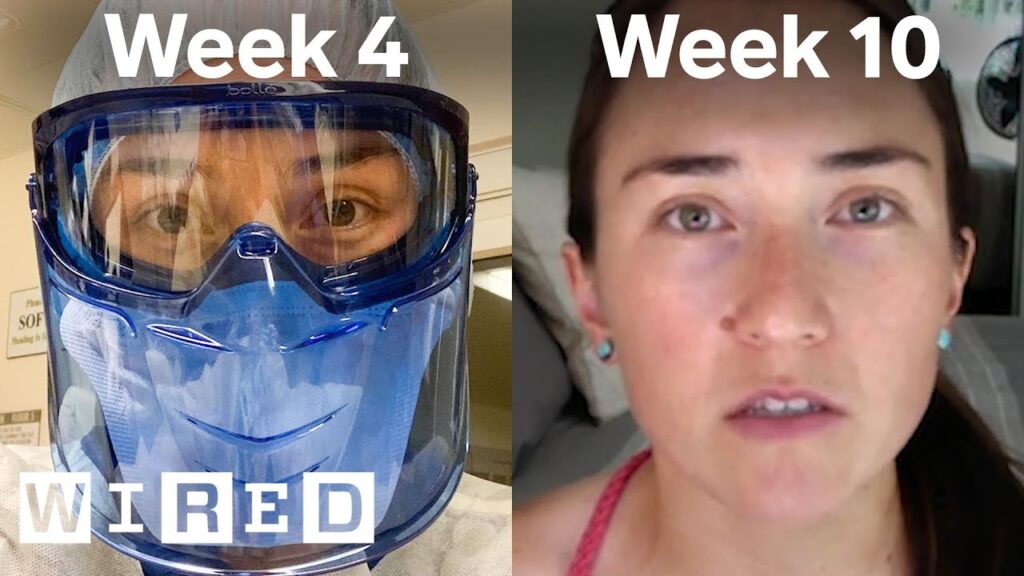Managing COVID-19 in ICU: Challenges and Triumphs
Summary
The article highlights the challenges faced by healthcare workers in managing COVID-19 in ICUs, including a lack of available beds and difficulties in isolating and treating patients effectively. The author also discusses their involvement in clinical trials for COVID-19 treatments and the importance of adaptability and ingenuity in these challenging times.
Table of Contents
- Managing COVID-19 patients in ICUs
- Risks associated with intubation and extubation
- Difficult decisions due to lack of beds
- Involvement in clinical trials for COVID-19 treatments
- The importance of adaptability and ingenuity
- Conclusion
Introduction
As COVID-19 continues to surge in Los Angeles, hospitals are struggling to keep up with the demand, leaving trauma patients without proper care. Healthcare workers report frustration with the lack of support and guidance from the government. In this article, we will explore the challenges faced by critical care fellows in managing COVID-19 patients in ICUs, and the importance of adaptability and ingenuity in these circumstances.
Q&A
Managing COVID-19 patients in ICUs
Q: What are the challenges of managing patients with COVID-19 in ICUs?
A: Managing COVID-19 patients in ICUs is challenging due to the highly infectious nature of the virus. Even patients who initially test negative are sometimes testing positive later in their stay, making it difficult to isolate and treat effectively. This puts healthcare workers at risk and requires more resources to be used on personal protective equipment (PPE) to prevent the spread of COVID-19.
Risks associated with intubation and extubation
Q: What are the risks associated with intubation and extubation of COVID-19 patients?
A: Intubation and extubation of COVID-19 patients pose a high risk of spreading the virus. This is because the process can generate aerosols, which can spread the virus further. Healthcare workers need to wear PPE when performing these procedures, and there is still a risk of exposure. Additionally, once patients are intubated, they often require prolonged mechanical ventilation, which can result in complications such as pneumonia, sepsis, and acute respiratory distress syndrome (ARDS).
Difficult decisions due to lack of beds
Q: What difficult decisions have been made due to a lack of ICU beds?
A: When there is a lack of ICU beds, healthcare workers are often faced with difficult decisions about which patients to admit and which to discharge. During the COVID-19 surge, patients were discharged earlier than they normally would be, even if it was not in their best interest. This is because hospitals needed to free up ICU beds for COVID-19 patients.
Involvement in clinical trials for COVID-19 treatments
Q: What clinical trials have been conducted for COVID-19 treatments, and what was your involvement in them?
A: We were involved in clinical trials for mesenchymal stem cells as a treatment for COVID-19. Mesenchymal stem cells have been shown to have anti-inflammatory properties, which can protect against the cytokine storm that can occur in COVID-19 patients. We were responsible for administering the treatment and monitoring patients for any side effects.
The importance of adaptability and ingenuity
Q: How important is adaptability and ingenuity in managing COVID-19 patients in ICUs?
A: Adaptability and ingenuity are extremely important in managing COVID-19 patients in ICUs. Healthcare workers are constantly faced with new challenges and need to adapt quickly to changing circumstances. This requires creative thinking and the ability to improvise with limited resources. For example, healthcare workers have to find new ways to communicate with family members of patients who are isolated due to COVID-19, and find alternative treatments when standard protocols are not possible due to a lack of resources.
Conclusion
Managing COVID-19 in ICUs is a challenging task that requires healthcare workers to be adaptable, resourceful, and innovative. While the lack of support and guidance from the government has been frustrating, the author emphasizes the importance of continuing to push forward and find new solutions in these difficult times. The devastating impact of COVID-19 on families who have lost loved ones cannot be ignored, but with the right approach and a commitment to working together, healthcare workers can continue to triumph in fighting this pandemic.







